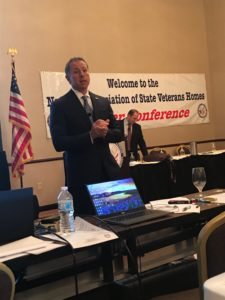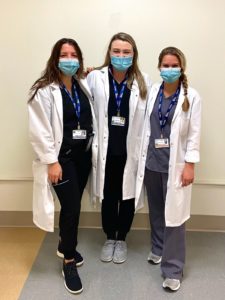
As a speech-language pathologist working with the geriatric population my thoughts often turn to dysphagia and aspiration. SLPs in skilled nursing facilities balance two distinct needs. We attempt to provide residents the least restrictive diet while also ensuring safety and reducing the risk of aspiration.
Now, we spend so much time talking about aspiration and doing our best to ensure physicians, nurses, residents, and families understand. First, aspiration is a real thing. Secondly, it has a real effect on the person’s health and the facility’s bottom line. Aspiration, particulates that fall below the level of the vocal cords, can lead to aspiration pneumonia, which can lead to re-hospitalizations and in severe cases death. Beyond the personal health risks associated with aspiration, the are severe financial costs that impact families and facilities alike.
Pneumonia after stroke is associated with higher mortality and hospitalization costs. Patients with the highest risk for pneumonia also have the highest risk for death associated with pneumonia. In a study published in 2012, Wilson noted that the average marginal cost of pneumonia on the hospitalization was $27,633 per episode. Additionally, it is linked to an increased risk of acquiring aspiration pneumonia to an increased risk of death. Backing up the claims of Wilson, van der Maarel-Wierink, Claar D. et al. (2011) noted that the risk of aspiration pneumonia is six times greater in patients over the age of 75, and mortality rates associated with aspiration pneumonia is about 5%.
So what does this mean? SNFs admit more medically complex residents into their facilities each day. This is a trend that will continue into the foreseeable future. We also know that the change to PDPM Speech will play a more significant role in reimbursement and the care of each and every resident.
Having a proficient and knowledgeable Speech Therapy Service Department is an asset to a SNF. Speech Therapists who are able to reduce the risk of aspiration pneumonia and treat patients with dysphagia are imperative. They work to reduce a facility’s hospital readmission rate, increase the quality of care, and mitigate risks to the resident and the facility.
If you have any questions, I’d love to hear your thoughts. Please use the comment box below.


